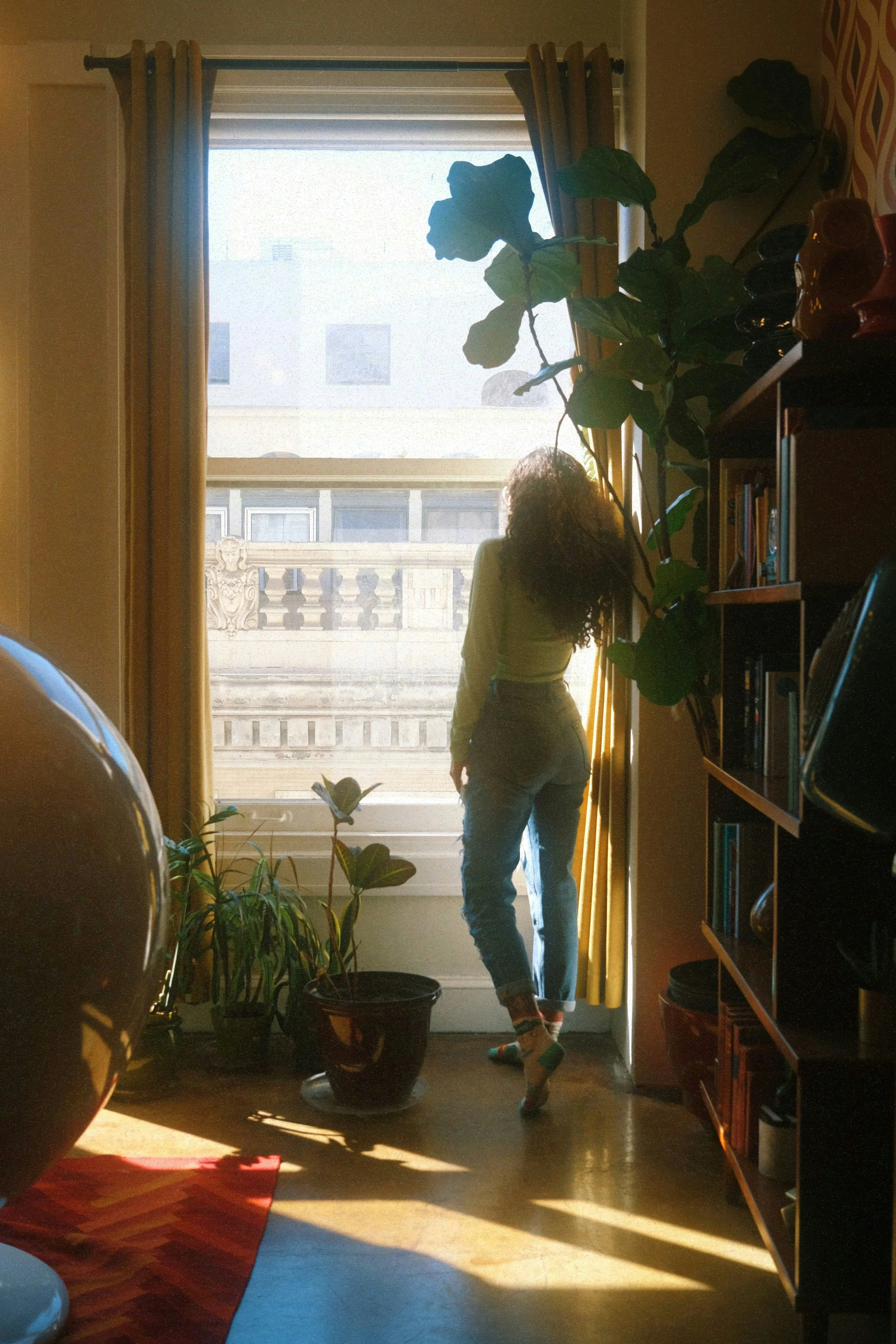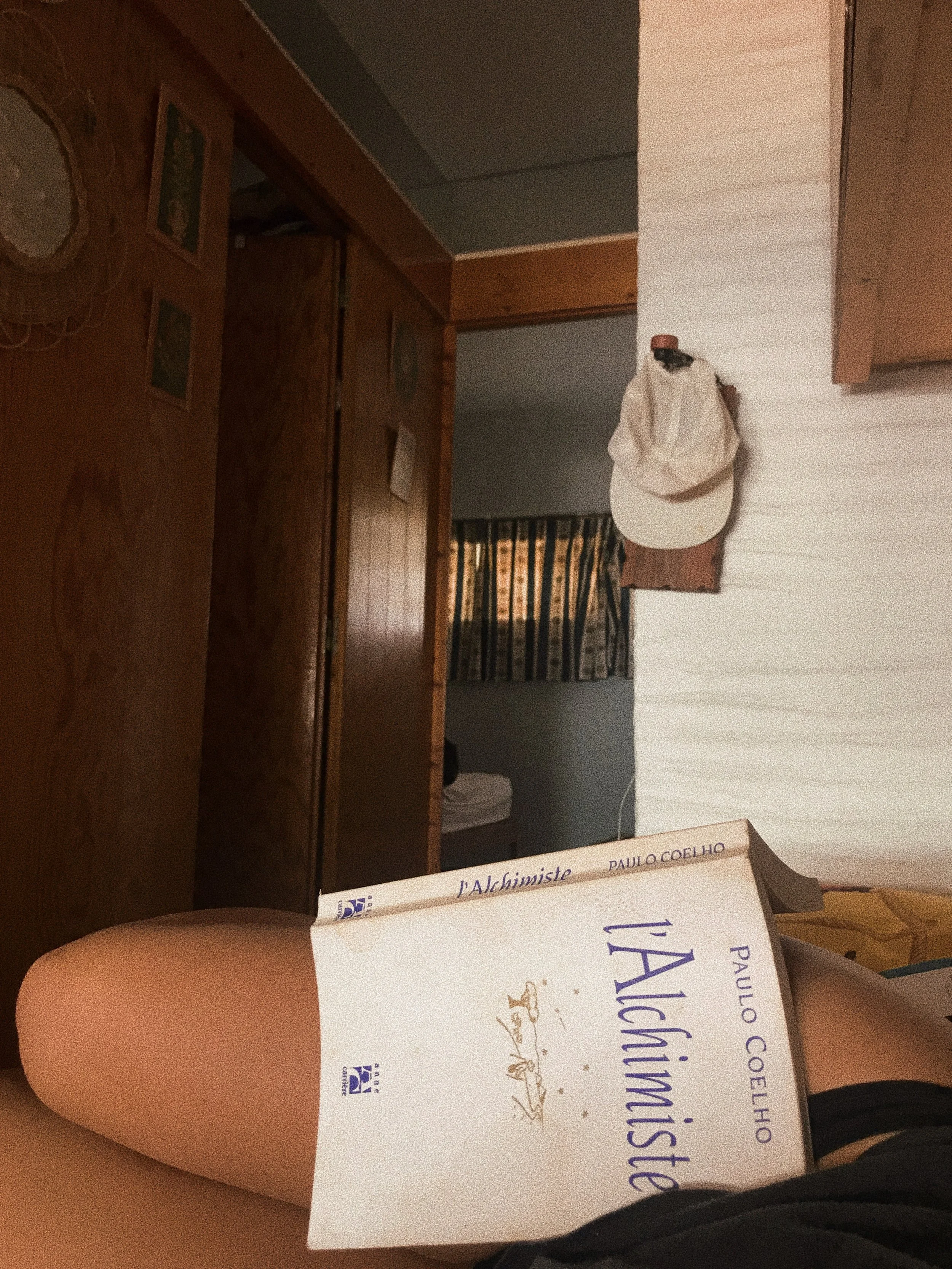The Season of Going Underground
If you feel exhausted, withdrawn, and heavy every October, it's not just seasonal depression—it's your body following an ancient rhythm of descent.
October and November mark the natural transition into what many cultures call "going underground"—a natural shift toward interiority as daylight decreases and winter approaches.
Your hormones shift. Your energy changes. Your mind works differently. As daylight decreases, melatonin rises earlier, cortisol patterns change, and your body prepares for winter's dormancy. Modern life ignores all of this completely, creating the exhaustion and resistance you feel during these months.
〰
Going Underground is the natural biological and psychological shift toward interiority—turning inward—that occurs in fall and winter as daylight decreases. Distinct from depression or withdrawal, it’s an ancient seasonal rhythm of descent that prepares the body and mind for winter's depth.
〰
the pull you're fighting
You feel it every October.
The morning light arrives later and leaves earlier, and something in you wants to follow it down. Not depression—something older. A pull toward quiet, toward home, toward the underground spaces of yourself you ignore all summer.
But you fight it. You maintain the same wake time despite the darkness. The same productivity despite your body's revolt. The same social energy despite wanting to disappear into wool and silence.
November amplifies this. The world grows gray and you're told this is sad, seasonal, something to push through with full-spectrum bulbs and forced cheer.
But your body knows better. It knows this is the season of going underground, and the exhaustion you feel comes from refusing to follow.
what going underground actually means
This descent is preparation. Every seed knows this. Every bulb planted in October understands that going underground gathers what's needed for inevitable bloom.
Many traditions understood October and November as the beginning of the dreaming time. Celtic wisdom called this the thin time, when the veil between worlds grew gossamer. In regions that experience true winter, this became the time when ancestors spoke clearer because the living finally grew quiet enough to hear.
Going underground means pulling your energy from the external and feeding the internal. Letting parts of yourself go dormant so others can secretly germinate. Accepting that not all seasons are for visible growth.
You know this in your body. The way your limbs feel heavier in October. The way your bed becomes a cave you don't want to leave. The way bright lights feel violent and soft darkness feels like relief. The way your appetite shifts toward what's dense and warm. Even your skin wants less—less stimulation, less exposure, less demand.
Maybe you don't feel it physically first. Maybe you notice it in your life instead. The way plans that excited you in September now feel impossible. The way conversations that once energized you now drain you completely. The way your usual ambitions suddenly seem distant, irrelevant, like they belong to someone else.
why modern life forbids the descent
Industrial time doesn't recognize seasonal time.
Your office lighting stays constant while darkness calls you deeper. Your schedule remains full while your body craves emptiness. October's productivity expectations match July's, as if you're a machine unaffected by the sun's arc.
The economy requires year-round consumption, year-round production, year-round availability. Going underground threatens this. When you're in your depths, you don't buy things to feel better. Don't perform happiness for social media. Don't maintain the exhausting pace that keeps everything running.
So you're told October sadness is disorder. November withdrawal is depression. The natural pull toward darkness is pathology instead of wisdom.
You learn to fear the underground instead of trusting it.
the wisdom of seasonal descent
Your body knows what your mind resists: some things can only happen in darkness.
Dreams intensify in longer nights. Creativity shifts from external expression to internal incubation. The problems you couldn't solve in summer's glare sometimes untangle in autumn's shadows.
October begins the composting season—not just for leaves but for the year's experiences. What happened to you needs to decompose into wisdom. What you've outgrown needs to fall away.
November takes this deeper, into the rich darkness where transformation happens at the root level.
This is why forced productivity during these months feels like violence. You're interrupting alchemy. You're flooding with artificial light what needs genuine darkness. You're trying to harvest what needs to be secretly sprouting.
honoring the underground season
Going underground while still living your life means living it differently.
October asks you to turn your attention inward even while maintaining outer responsibilities. November asks you to protect what's incubating.
This looks like saying no to evening plans that summer-you would have loved. Like going to bed when darkness suggests instead of when Netflix ends. Like eating root vegetables and soups that ground you rather than salads that cool what's already cold. Like choosing practices that deepen rather than accelerate.
Some of your friendships might not survive your underground season. The ones that require constant performance, perpetual availability, summer energy in winter months.
This is composting. Making room for relationships that can hold your depths, not just your surface.
what emerges from going underground
By December, something shifts.
The light hasn't returned yet. But you've been underground long enough for the first stirrings of what's been germinating. Winter solstice marks the deepest dark, but also the moment when the return begins.
Those who honor October's call to descend and November's demand to stay under arrive at winter transformed. Not improved—composted. Not optimized—alchemized.
What emerges from genuine underground time can't be forced or faked or rushed.
This is what your exhaustion has been trying to tell you: stop fighting the descent. The underground season is where next year's life is secretly forming.
October has already begun pulling you down. November will take you deeper if you let it.
Your October exhaustion is the beckoning. The invitation to go to that deeper place you once knew like breathing. The part of the cycle that happens in darkness. The part that can't be seen or measured or performed. The part that transforms you at the root level, where no one's watching, where the real work happens.
You're not depressed. You're not broken. You're not failing at fall.
You're being called underground, where transformation begins.
The only question is whether you'll keep fighting the descent, or finally trust where October is taking you.
signs you're being called underground
Your social battery depletes faster. Morning feels impossible despite sleeping longer.
You crave quiet, warmth, heaviness. Small talk feels unbearable.
You want to read instead of watch, write instead of speak, dream instead of do.
Nothing is wrong. Everything is asking you to go deeper.
October knows. Your body knows. It's time to go underground.



